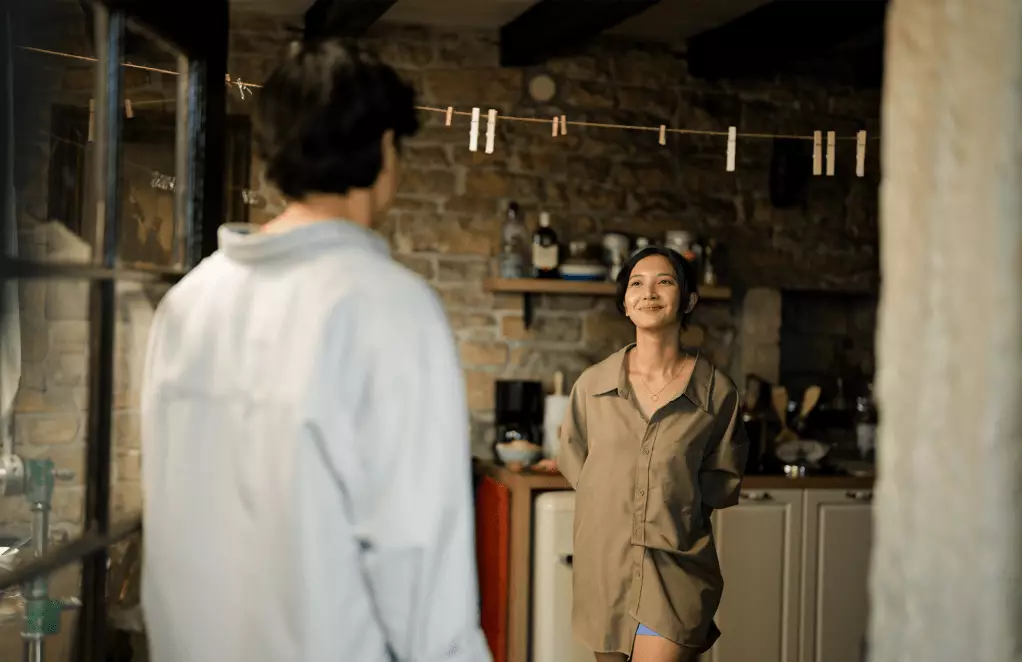Indonesian cinema is experiencing a renaissance, and “Sore: Wife from the Future” exemplifies this transformative wave. Unlike previous years dominated by blockbuster hits rooted in traditional storytelling, this sci-fi romance pushes creative boundaries while achieving significant box office success. The film’s impressive performance—over 2.33 million admissions since its July release—signals a shift in both audience preferences and industry confidence. It stands as a testament to the growing appetite for diverse genres in Indonesia, especially those that incorporate innovative storytelling techniques like time travel and speculative fiction.
What is particularly noteworthy is its contribution to the broader trend of local films maintaining dominance at the box office. Despite challenges such as limited screening space—an issue that hampers even Hollywood’s presence—Indonesian filmmakers continue to carve out a substantial share of the market. The fact that local films now make up approximately 78% of the industry’s market share showcases a resilient industry increasingly willing to diversify its narratives. “Sore” embodies this change by blending cultural specificity with genre experimentation, ultimately broadening the scope of what Indonesian cinema can represent on both a domestic and international level.
Innovative Storytelling Meets Cultural Collaboration
“Sore” is not just another romantic film; it’s an ambitious fusion of sci-fi and emotional depth. Set against the backdrop of Croatia—an unusual choice for an Indonesian film—the movie demonstrates a bold willingness to explore international cooperation and expand storytelling horizons. The collaboration between Indonesia’s Cerita Films and Croatia’s Balduci Film, supported by the Croatian Audiovisual Centre, exemplifies a new wave of cross-cultural filmmaking. This partnership not only boosts the film’s production value but also positions Indonesia as an active player in global cinema collaborations.
The narrative itself, revolving around a young man who encounters his future wife, who is on a mission to help him change his life, offers a refreshing take on romance. It challenges conventional tropes by integrating elements of science fiction, time travel, and psychological life lessons. Director Yandy Laurens, known for his innovative approach, adapts his own web series into this feature film, signaling a shift toward multi-platform storytelling—an area ripe with potential for Indonesian creators to harness new media channels.
Furthermore, involving Croatian talents like Goran Bogdan and Lara Nekic highlights a conscious effort to infuse the project with diverse perspectives. This synergy not only elevates the production quality but also exemplifies Indonesia’s opening to international artistic exchange. Such efforts diversify Indonesian cinema, allowing it to resonate beyond local borders, thereby strengthening cultural diplomacy and storytelling innovation.
Industry Impact and Future Outlook
The success of “Sore” carries important implications for the future of Indonesian film industry dynamics. As a production that pushes creative boundaries and succeeds commercially, it challenges the industry to embrace more experimental and genre-blending films. The involvement of Cerita Films in producing without external backing marks a pivotal moment—a sign of growing confidence within Indonesian production houses. This independence and willingness to explore unconventional narratives bode well for a more vibrant, diverse cinematic landscape.
However, the industry also faces long-term hurdles, foremost among them being infrastructural limitations such as the shortage of screens. While local films continue to outperform foreign films in domestic markets, the scarcity of cinema screens threatens to bottleneck further growth. Addressing this challenge requires strategic investments and policies to expand access, fostering an environment where innovative films like “Sore” can reach wider audiences.
Ultimately, “Sore” reflects more than just a successful film; it embodies Indonesia’s potential to redefine its cinematic identity. By venturing into genres that have traditionally been underexplored and fostering international collaborations, Indonesian filmmakers are reshaping the narrative—both figuratively and literally—on a global scale. This film’s journey signals an encouraging future where daring storytelling and cultural exploration take center stage, invigorating the local industry and captivating audiences worldwide.
